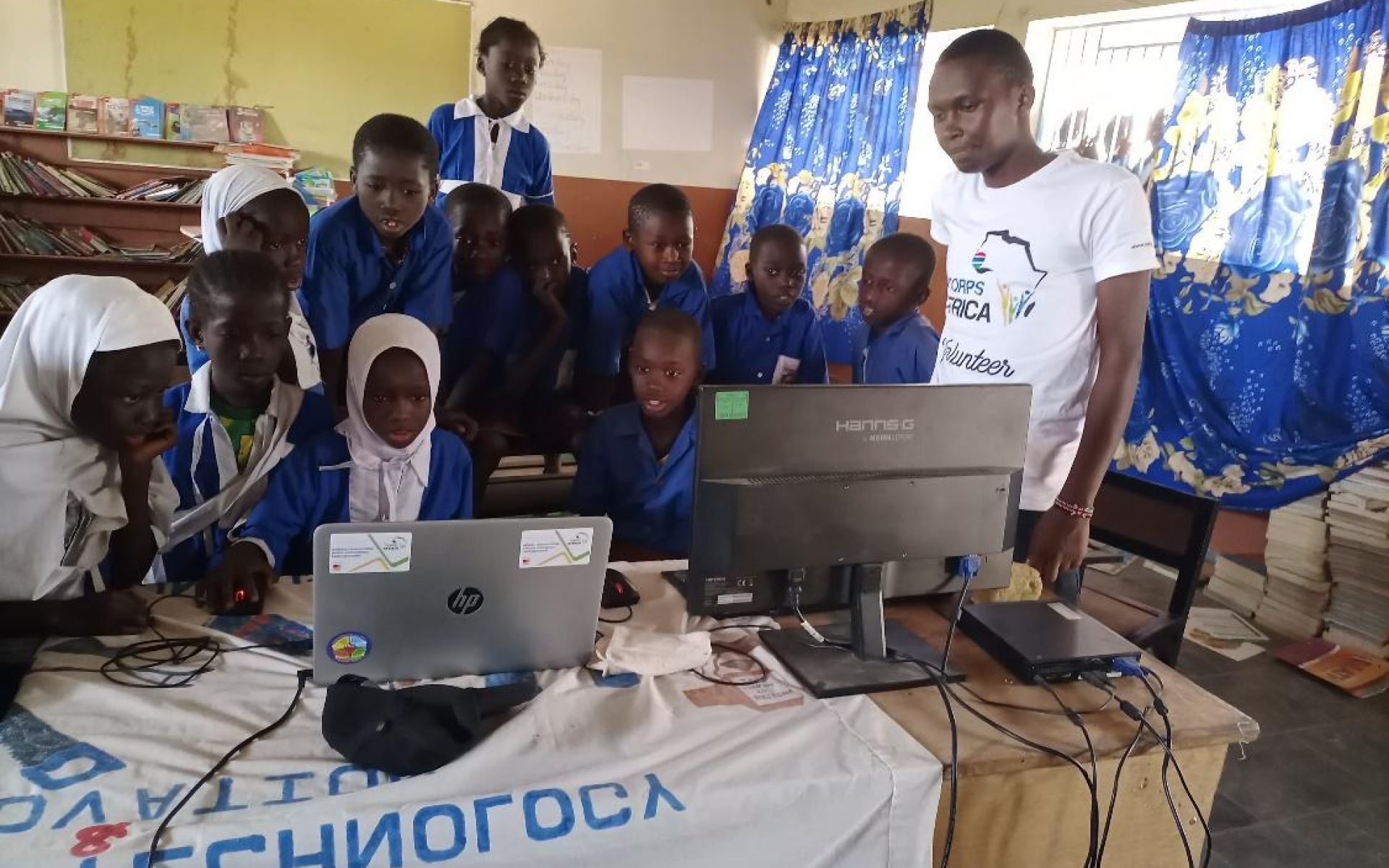I was welcomed with open arms when I first arrived in Jiffin Village as a CorpsAfrica/Gambia Volunteer. The warmth of the people made me feel at home almost instantly, and in no time, I was no longer just a visitor; I was family. As a CorpsAfrica volunteer, my first mission was to integrate into the community, listen deeply, learn humbly, and find meaningful ways to contribute. But I never imagined that one conversation would spark a journey that could change the lives of Jiffin’s children and teachers profoundly.
During my first week in the village, I visited Jiffin Lower Primary School, where I met the headmistress, Mrs. Fatou Njie, and her team of dedicated teachers to introduce myself to them. As we talked, she shared something that stuck with me for a while: over a year ago, the school had received computers from a development partner. But instead of being used, they sat in a storage room, untouched and gathering dust. The reason? No one knew how to teach computer skills.
That thought weighed on me. Here were valuable resources—tools that could open doors for these students, just sitting there, unused. And yet, in a world where digital literacy is becoming as essential as reading and writing, these children were missing out on an opportunity that could shape their future. That’s when I knew: this was my chance to make a real impact.
With excitement and a clear sense of purpose, I decided to start a computer skills training program, not just for the students, but for the teachers as well. My goal was simple: to equip them with the knowledge and confidence to keep teaching digital skills long after my time in Jiffin.
The first few lessons were a mix of curiosity and hesitation. Many of the students had never even touched a computer before, and at first, they approached the machines with caution. But the moment their fingers hit the keyboards and the mouse, something magical happened. Their eyes lit up with wonder and excitement. Now, computer class is quickly becoming the highlight of their week. Some students even sneak in during break time, eager to practice what they’ve learned—something I never expected but love to see.
The impact is already rippling beyond the classroom. Parents have started sharing stories with me. One mother told me how her child came home and proudly explained how to turn on a computer and use a mouse. Both teachers and students always like repeating a phrase in the Mandika Language that I used when explaining the parts of a computer, where they always say “computer hakilo mbe Jang” as they point to the central processing unit (CPU), which simply means this is where the brain of a computer is. These small moments mean everything. They are proof that what we’re doing matters.
But this program isn’t just about learning how to use a computer. It’s about preparing these children for a future where digital skills are no longer optional; they are a necessity. The students of Jiffin are on the verge of gaining an incredible advantage: a foundation in technology that will set them apart from their peers in similar rural communities.
For the next few months, I’m committed to sharing as much knowledge as possible, ensuring that both children and adults gain confidence in using technology. And Jiffin’s story isn’t unique. Countless rural communities across Africa lack the necessary tools and skills to gain computer skills at an early age. Imagine what could happen if every school had access to proper digital education. The possibilities are endless. Bridging the digital divide starts with one step, one lesson, and one child at a time. This is more than just a class; it’s the beginning of a future where no child in Jiffin is left behind in the digital age.

